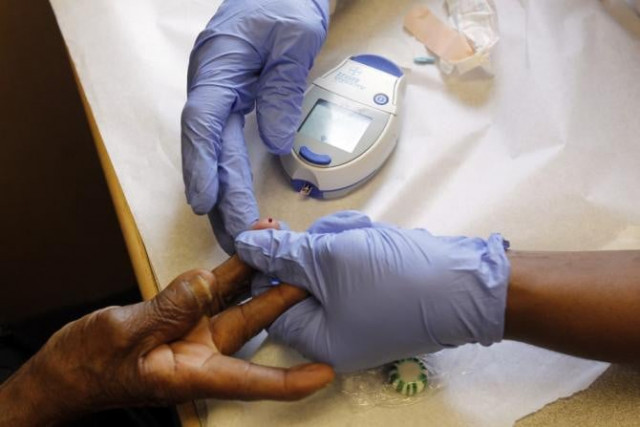Experts highlight link between diabetes and coronavirus
Diabetics are required to take extra care of themselves during Covid-19 pandemic

The Jinnah Postgraduate Medical Center (JPMC) organised the 8th National Diabetes Symposium 2021 on the occasion of World Diabetes Day in which health experts shed light on the causes of diabetes in the current era, its prevention, treatment, the causes of psychological and mental stress caused by diabetes.
Pakistan ranks third in the world, in terms of the prevalence of diabetes with 3.3 million cases. Prof. Dr. Shahid Rasool, Acting Vice Chancellor, JPMC, thanked the health experts for organising the symposium and for their valuable time and said that the prevalence of diabetes in Pakistan was at alarming level.
The 8th Diabetes Symposium 2021 was organised by Diabetes Clinic Ward 7 of JPMC in the Najamuddin Auditorium.
At the symposium, Dean of Medicine JMSU and Dean of JPMC Professor Masroor Ahmed highlighted the link between diabetes and coronavirus and said that diabetics need to take more care of themselves during the coronavirus epidemic as obesity in diabetes leads to increased mortality.
Dr. Ijaz Vohra, Professor of Medicine, Zia-ud-Din University, emphasised the importance of glycemic control and said that everyone should be screened for diabetes by the age of 40. He said that effective strategies should be adopted to prevent diabetes.
"Facilitate access to medicines at affordable prices, promote awareness, avoid obesity and encourage physical activity," he said.
Dr. Qaiser Jamal, Professor of Medicine, Abbasi Shaheed Hospital, while discussing "Lifestyle Management", said that diabetes was spreading at an alarming rate. "The United States has the second highest prevalence of diabetes, followed by China," he said and added that in order to avoid diabetes, we should start the day with a healthy breakfast. "Type 2 diabetes is more dangerous and affects every part of our body.
Read More: ‘More research needed on safe fasting with diabetes’
Therefore, we need to raise awareness about diabetes through seminars, symposiums and other interactive sessions," he said. Dr. Shabnam Naveed, Associate Professor, JSMU / JPMC, highlighted the strong link between diabetes and depression and said that diabetes and depression is a two-way process.
"That is to say, it is not enough to say that only a diabetic patient can get depression because people suffering from depression have also been seen to be suffering from diabetes," she explained. "Most of the diabetics are given medicines but their mental health problems due to this disease are not taken into consideration.
Up to 40 per cent of patients with diabetes are affected by mental health. We need to keep our glycemic levels under control to prevent diabetes," she said. "The prevalence of depression is 21 per cent in type 1 diabetes patients, 27 per cent in type 2 patients, 28 per cent in women and 18 per cent in men," she added.
"Doctors should be given awareness-based training to deal with this situation. The patient's mental health should be screened and the provision of screening equipment should be ensured." The experts of the first session included Prof. Mashhur Alam Shah, Prof. SM Munir and Dr. Rakhshanda. In the second session of the symposium, Dr. Urooj Lal Rehman highlighted the management of Gestational Diabetes.
Prof. Khalid Shar shared his valuable views on diabetes and dementia and Dr. Shafiqul-ur-Rehman shared his valuable views on the effects of diabetes on bone health.
The experts of the second session included Prof. Zaman Sheikh, Prof. Najamul Islam, Prof. Halima and Prof. Khadija.
JSMU Registrar Dr. Azam Khan was also present during the symposium. The symposium was attended by a large number of people from health sector including general physicians, graduates, post graduates, medical practitioners and students.



















COMMENTS
Comments are moderated and generally will be posted if they are on-topic and not abusive.
For more information, please see our Comments FAQ